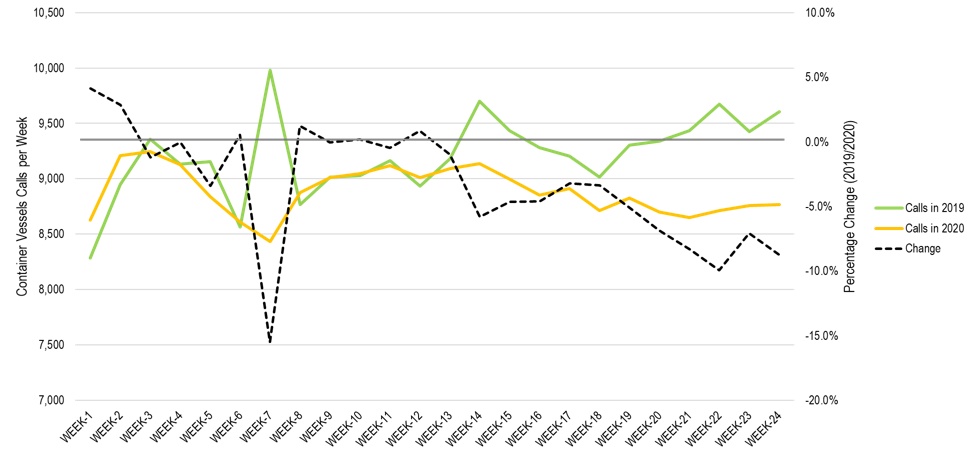The main implications of the pandemic on global logistics with a specific focus on container ports and shipping lines is the theme of a joint contribution by Theo Notteboom, Thanos Pallis and Jean-Paul Rodrigue in the 100th issue of Port Technology International.
The COVID-19 pandemic led to the second global crisis since the 2009 financial crisis, which resulted in a recession in all OECD countries and most emerging economies. It fundamentally challenged the direction of future trade flows and trade arrangements. The stability of global financial institutions, continuous an Nd sustainable GDP growth, the reliance on OECD economies, government economic interventions, and widely applied logistics concepts such as just-in-time were put in question and contested, if not opposed. From a business cycle perspective, periods of growth are commonly followed by adjustment phases where misallocations are corrected. This phase of readjustment was felt in the aftermath of the 2008-2009 financial crisis with a substantial impact on maritime shipping companies and port terminals.
This time, the COVID-19 presents new and unprecedented impacts on global supply chains, and the port and shipping industry
In their contribution published in the landmark 100th issue of Port Technology International – a PortEconomics partner in publishing – and benefited by research contacted for intergovernmental organizations and port associations, Theo Notteboom, Thanos Pallis, and Jean-Paul Rodrigue provide a snapshot on:
- The effects of the pandemic on global supply chains
- The adaptive capacity of container carriers
- Container vessel calls and TEU volumes in ports
- Impact of the pandemic on liner connectivity of ports
- Terminal operations making the most of their asset-based positions
You might freely download the article via PortEconomics here
The contribution is part of broader work currently in progress on the impact of COVID-19 and Ports.
The entire publication can be freely downloaded from the Port Technology International – PTI website after leaving your business coordinates.












